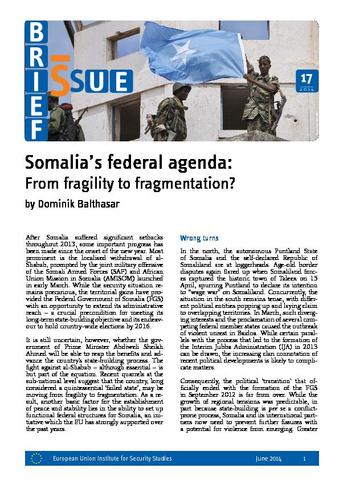You are here
Somalia’s federal agenda: from fragility to fragmentation?

After Somalia suffered significant setbacks throughout 2013, some important progress has been made since the onset of the new year. Most prominent is the localised withdrawal of al-Shabaab, prompted by the joint military offensive of the Somali Armed Forces (SAF) and African Union Mission in Somalia (AMISOM) launched in early March. While the security situation remains precarious, the territorial gains have provided the Federal Government of Somalia (FGS) with an opportunity to extend its administrative reach – a crucial precondition for meeting its long-term state-building objective and its endeavour to hold country-wide elections by 2016. It is still uncertain, however, whether the government of Prime Minister Abdiweli Sheikh Ahmed will be able to reap the benefits and advance the country’s state-building process. The fight against al-Shabab – although essential – is but part of the equation. Recent quarrels at the sub-national level suggest that the country, long considered a quintessential ‘failed state’, may be moving from fragility to fragmentation. As a result, another basic factor for the establishment of peace and stability lies in the ability to set up functional federal structures for Somalia, an initiative which the EU has strongly supported over the past years.